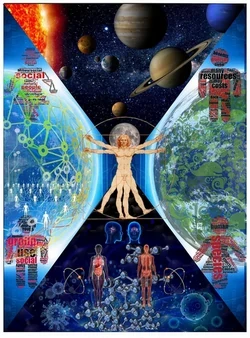Global Political Corruption Driven by Wealth and Influence
1. Wealthy Individuals and Political Corruption
- Mechanisms of Corruption:
- Campaign Financing: Billionaires like Elon Musk, Jeff Bezos, and others often donate heavily to political campaigns, ensuring access to policymakers and favorable legislation. In countries with weak campaign finance laws, this influence skews policy priorities toward corporate and elite interests.
- Media Ownership: Wealthy individuals often own media outlets, which allows them to shape public discourse and political narratives. For example, Rupert Murdoch’s media empire wields significant political influence in countries like the U.S., UK, and Australia, often advocating for policies that align with elite economic interests.
- Global Impact:
- Policies shaped by elite interests can exacerbate inequality and marginalize underrepresented groups.
- Democracies become less responsive to public needs as governments cater to their wealthiest donors.
2. Corporations and Policy Manipulation
- Mechanisms of Corruption:
- Lobbying: Corporations like Amazon, ExxonMobil, and Google spend billions annually to influence legislation on issues such as taxes, regulations, and labor laws. This lobbying often results in policies that benefit large corporations while neglecting broader societal needs.
- Revolving Door Politics: Executives from major corporations frequently transition into government roles and vice versa, creating conflicts of interest. For example, oil industry executives often influence environmental policies, weakening regulations to favor fossil fuels.
- Global Impact:
- Corporate influence on trade agreements and tax laws undermines the sovereignty of smaller nations.
- Deregulation in key sectors like finance and energy increases environmental degradation and economic instability.
3. Religious Institutions and Political Corruption
- Mechanisms of Corruption:
- Moral and Cultural Influence: Religious institutions often sway public policy by appealing to moral authority, particularly in areas like reproductive rights, education, and LGBTQ+ rights. For instance, the Catholic Church has historically influenced laws in Latin America and Europe regarding abortion and contraception.
- State Funding and Tax Exemptions: Religious institutions lobby for tax exemptions and state funding for schools and hospitals, redirecting resources that could fund public services.
- Global Impact:
- Policies influenced by religious doctrine can restrict human rights and hinder progress on social issues.
- Tax-exempt status for wealthy institutions reduces government revenues, perpetuating inequality.
4. Organized Crime and Political Infiltration
- Mechanisms of Corruption:
- Bribery and Intimidation: Organized crime groups like the Ndrangheta, Sinaloa Cartel, and Russian Mafia use bribes to influence politicians, law enforcement, and judiciary officials. In many regions, these groups ensure lenient enforcement of laws and favorable conditions for their operations.
- Parastate Power: In weak states, crime groups effectively act as governments, providing services in exchange for loyalty and protection. This undermines legitimate state authority and perpetuates corruption.
- Global Impact:
- Criminal networks destabilize countries, increasing violence and insecurity. For example, cartel influence in Mexico has eroded trust in public institutions, fueling migration and human rights violations.
- Cross-border corruption disrupts international cooperation on crime and security.
5. Corrupt States and Systemic Political Decay
- Mechanisms of Corruption:
- State Capture: In countries like Venezuela, elites use state resources for personal gain, undermining governance and public trust. The intertwining of drug cartels and government officials has turned parts of the state into enablers of organized crime.
- Election Rigging: Corrupt regimes manipulate elections to maintain power, often with financial backing from external actors who benefit from the status quo. For example, reports of election interference and bribery in countries like Russia and Belarus highlight how corruption perpetuates authoritarianism.
- Global Impact:
- Corrupt states exacerbate regional instability, creating conditions for conflict and displacement.
- International aid often fails to reach those in need, as funds are siphoned off by corrupt officials.
Cross-Cutting Themes in Global Political Corruption
-
Erosion of Democracy:
- Wealthy individuals and corporations increasingly dictate policy priorities, diminishing the influence of ordinary voters. In extreme cases, democracies become "plutocracies," where money equals power.
- Example: In the U.S., the Supreme Court’s Citizens United ruling allowed unlimited corporate spending on campaigns, amplifying the political voice of the wealthy.
-
Weakened Sovereignty:
- Smaller nations often find their policies influenced by external actors, such as multinational corporations or organized crime networks. This undermines national sovereignty and erodes trust in governments.
- Example: In Africa, corruption linked to resource extraction (e.g., diamonds, oil) often involves multinational corporations and local elites working against the public interest.
-
Globalized Corruption Networks:
- Offshore tax havens and global financial networks facilitate the concealment of illicit wealth, enabling corruption on an international scale. These networks protect the assets of corrupt politicians, criminals, and corporations.
- Example: The Panama Papers revealed how political leaders and elites from over 50 countries used offshore accounts to evade taxes and hide wealth.
-
Impact on Public Services:
- Corruption siphons resources away from essential services like healthcare, education, and infrastructure, exacerbating inequality and poverty.
- Example: In Venezuela, widespread corruption has left public hospitals without basic supplies, despite the country’s vast oil wealth.
Potential Solutions to Combat Political Corruption
-
Campaign Finance Reform:
- Implementing stricter limits on political donations and spending can reduce undue influence by wealthy individuals and corporations.
-
International Anti-Corruption Initiatives:
- Expanding frameworks like the United Nations Convention Against Corruption (UNCAC) and strengthening institutions like the Financial Action Task Force (FATF) can target cross-border corruption.
-
Transparency and Public Accountability:
- Enhancing transparency in government spending, corporate lobbying, and religious finances can reduce opportunities for corruption.
-
Strengthening Independent Media:
- Supporting investigative journalism and whistleblower protections can expose corruption and hold leaders accountable.
-
Empowering Civil Society:
- Activists and non-governmental organizations play a critical role in advocating for reforms and monitoring government actions.







